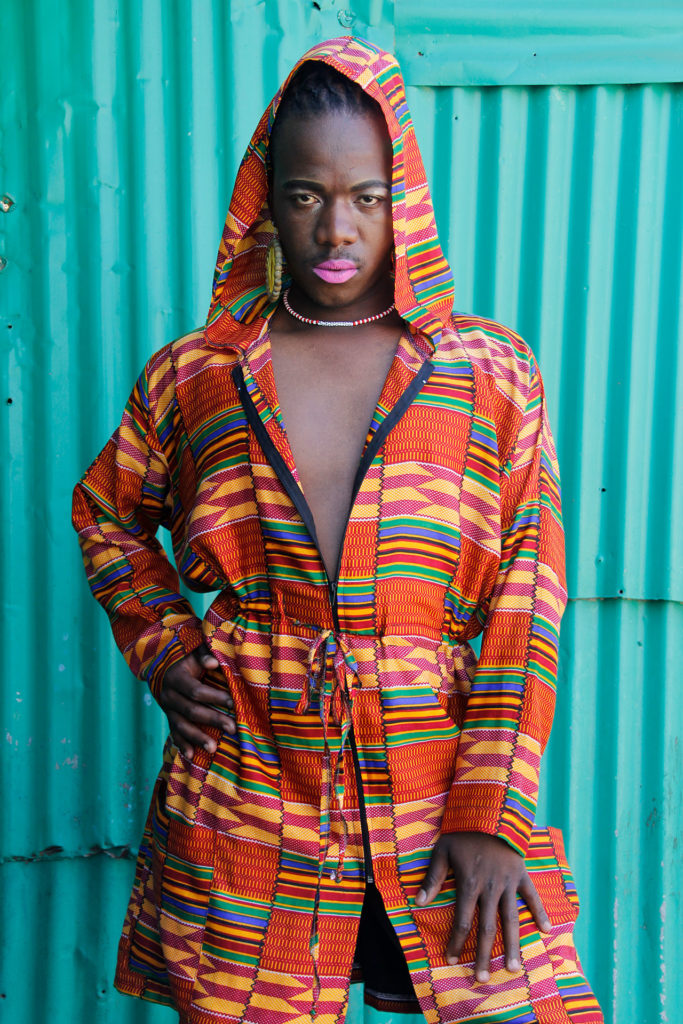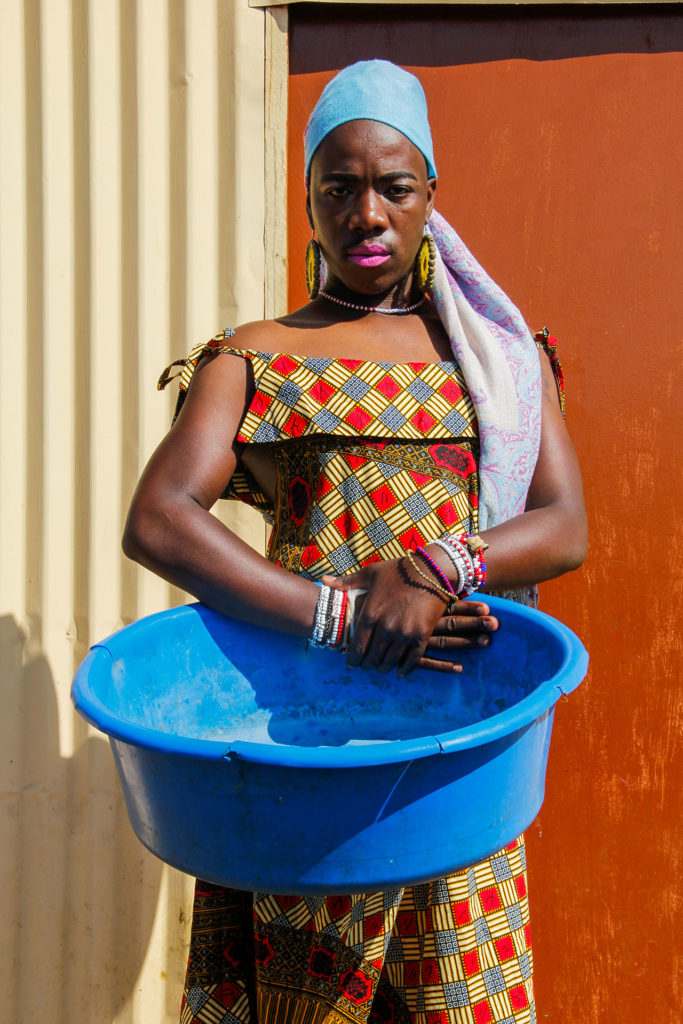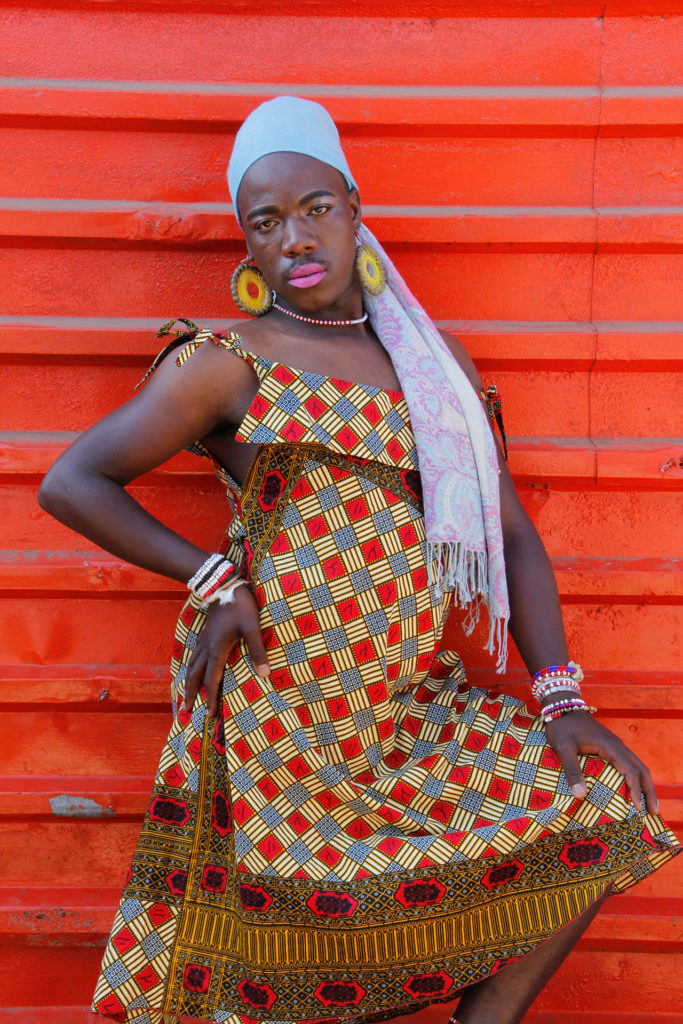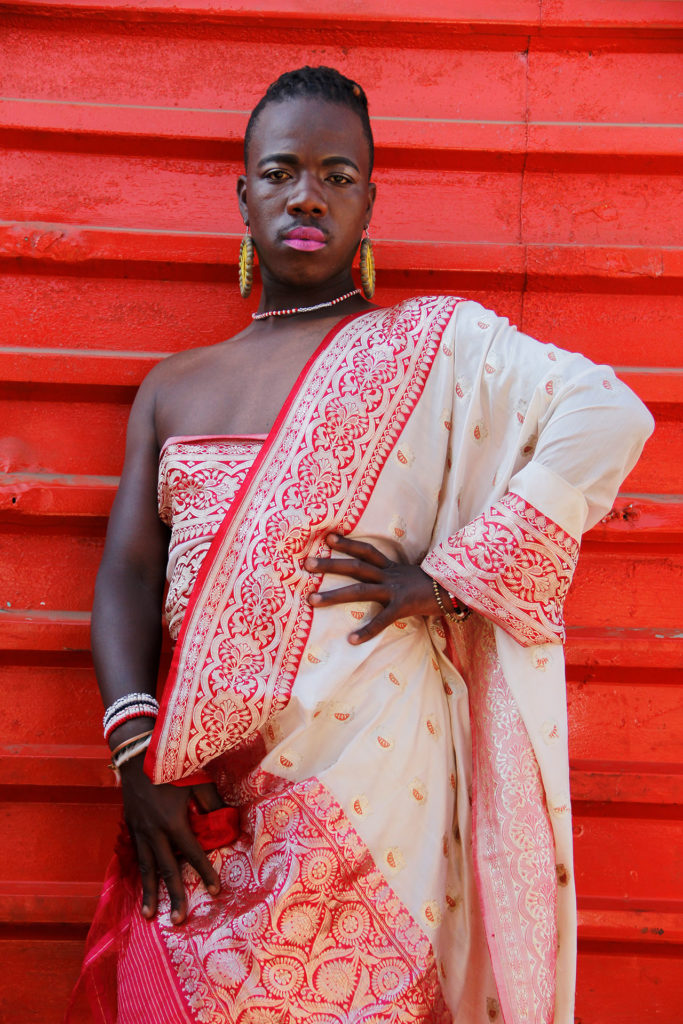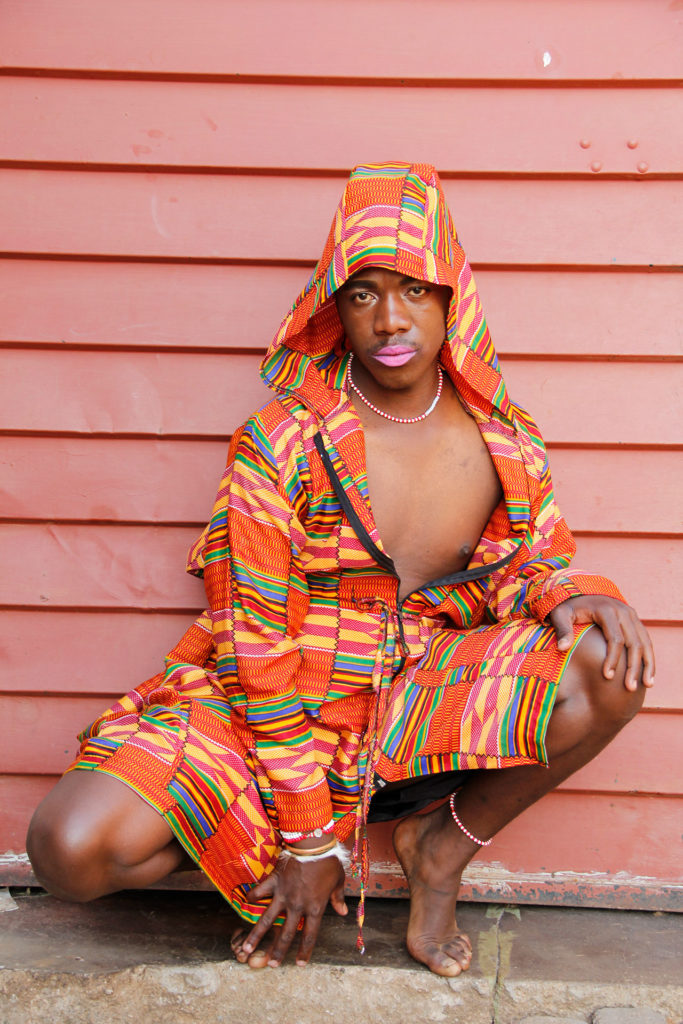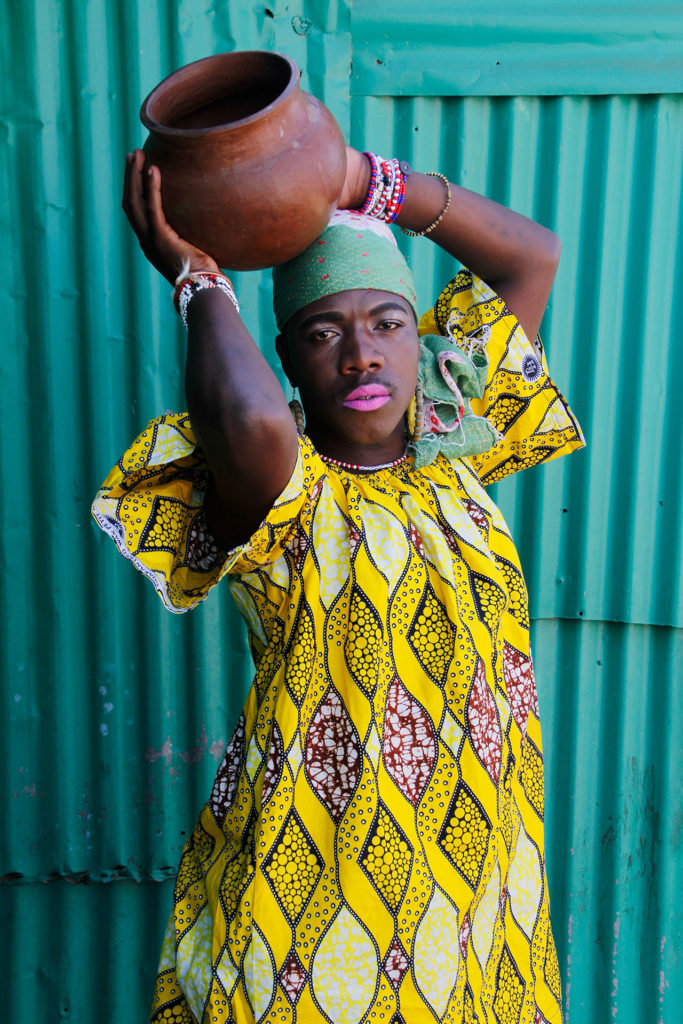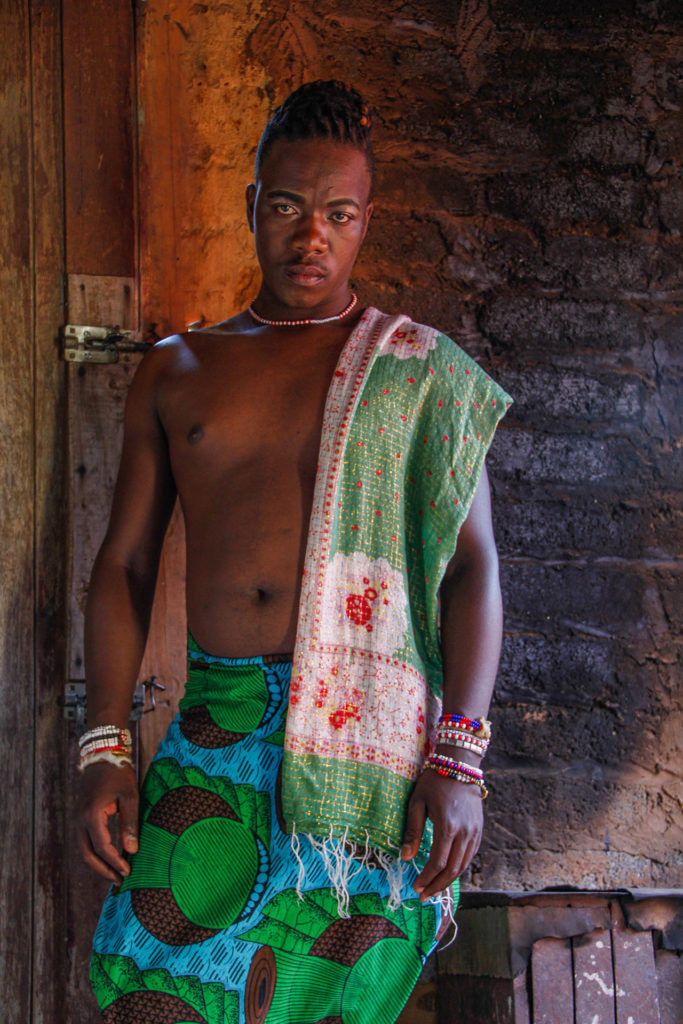Nonkululeko Dube – Simphiwe
(We have been gifted)
Audio Guide read by Frederik Busch
Nonkululeko Dube (South Africa)
Nonkululeko Dube was born in South Africa. She is a photographer and writer and lives in Richards Bay, KwaZulu-Natal, a coastal South African province. She graduated from Inkanyiso Mobile School of Photography and currently studies photojournalism and documentary at The Market Photo Workshop. Her first exhibition, titled Volume 44, was a co-exhibition at the Market Photo Workshop on sexuality and
gender-violence in colloboration with the Dutch embassy in South Africa.
As a photographer her work focuses on documentary and conceptualized photography. Nonkululeko focuses on recording memories of the past and traumatic instants as a catharsis. Discovering environmental and social issues that make humans start investigating and questioning the norm. The exhibited work “Simphiwe (We have been gifted)” is a collaboration between 27- year-old traditional healer, Simphiwe Masombuka and Nonkululeko Dube. Masombuka provides traditional healing services to many in their community.
Nonkululeko about Simphiwe (We have been gifted)
My intention with this project is to embrace the freedom we obtained 25 years ago by depicting our freedom to express our ideas, opinion and sexualities without fear of discrimination. I was inspired by positive energy Masombuka has towards life and the fact that they are open minded. I knew certainly that collaborating with them would be a rewarding experience. The shacks of KwaThema are nothing like the ones I grew up in back home. They are made of the same material, but they are painted in beautiful, bright colors. The reason I chose the informal settlements is that they always associated with inequality, violence and crime. But in this case, I needed to show something beautiful about the shacks.
The Jury Statement
We chose this work because it addresses gender nonconforming identity and behavior in a collaborative and unique way. We see a strong and consistent series of portraits, questioning the photographic tradition of documenting humans in their everyday outfit and surroundings. At the same time, the work contradicts the depiction of traditional gender roles. It establishes a consistent aesthetic disrupting the viewer’s stereotypical expectations. The special quality of Nonkululeko Dube’s work derives from this disruption as well as her collaborative approach.

